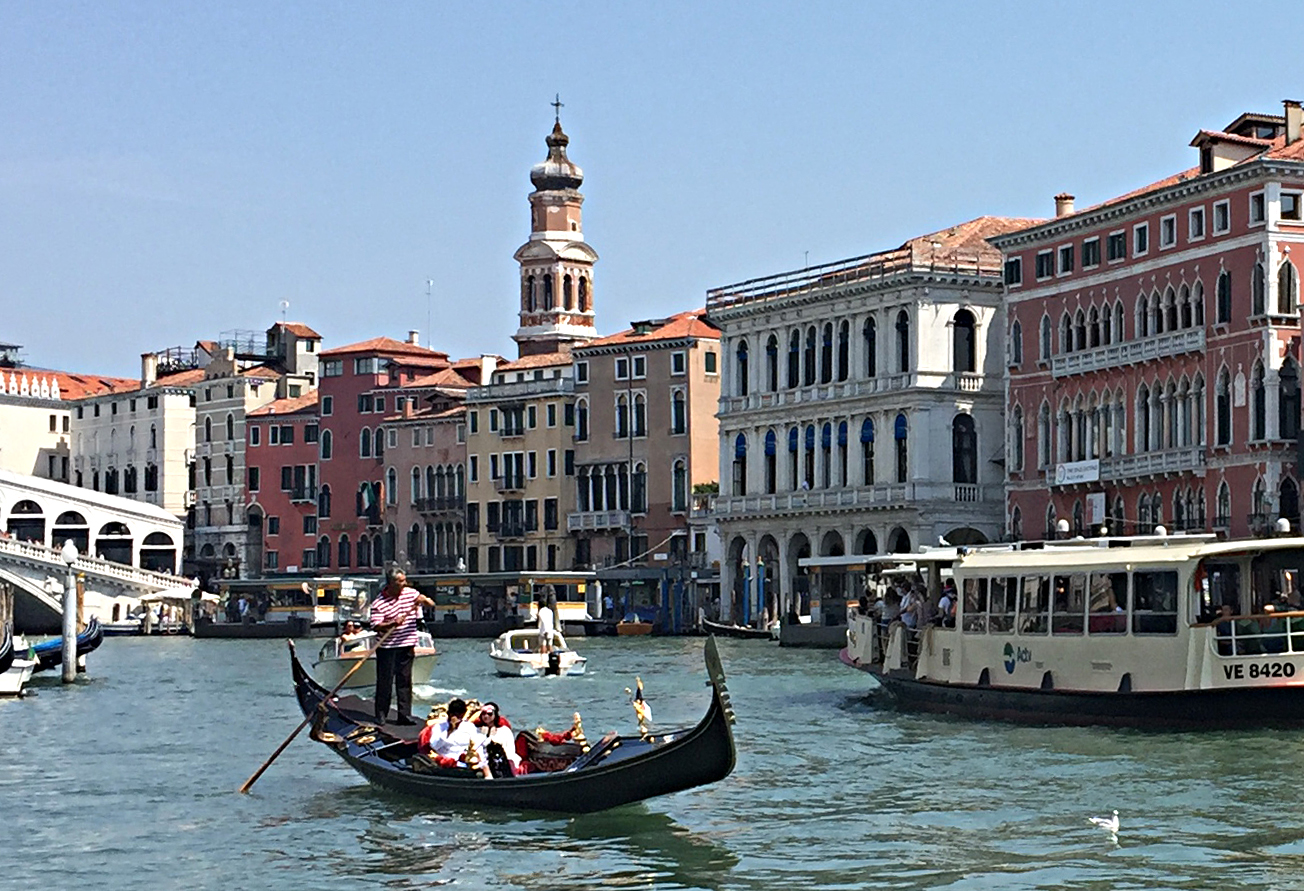Travel in the internet era: we’re all experts now
September 19, 2018By Robert Herschbach
Visiting Italy this summer, I found myself continually reminded of the ways in which the internet has optimized travel. The experience of travel, after all, has always been intertwined with information: you need to know where you are going, how to get there, and what to do once you’ve arrived.
In the pre-smartphone era, we lugged along bulky, printed guides. We had notebooks and journals full of scribbled flight numbers, hotel addresses and other essential information. With limited knowledge of our destinations, the element of risk was higher: it was easier to get lost, get ripped off, or miss something worth seeing.
All that has changed.
With accommodations and tickets pre-booked online, itineraries stored on Google Maps, websites and blogs diligently bookmarked, I wasn’t just a traveler – I was an expert. True, my expertise resided on a portable electronic device rather than in my physical brain; nevertheless, it was instantly accessible. The answer to any question – Where can you taste the best gelato in Florence? Who were the Five Good Emperors? Why is my flight late? – could be summoned, not quite at the speed of thought itself, but close enough.
What are some of the specific ways in which the internet can be used to enhance travel? Answers will vary; here are a few of my take-homes.
1. To find the best information, do an internet “deep dive”
Perhaps the single most important lesson, for me, was the importance of going beyond a casual internet search. Hype and buzz command the first page of Google results. Scan “Things to Do” on TripAdvisor and you’ll bring up a list of pricey organized tours.
For more substantive information, dig deeper. As with everything else, a little extra patience and effort yields rewards. Instead of going by ads on TripAdvisor, explore the site’s discussion forum, where travelers – and often locals from the destination countries – share tips and recommendations. The user community at Rick Steves.com is also a good place to garner insider information or request advice.
Get to know the blogs that cover the places you’re going to visit: the best ones combine on-site knowledge with an understanding of the visitor’s perspective. A few faves: Girl in Florence, An American in Rome, and I Am Not Making This Up.
2. In the digital era, there’s no need – or excuse – for standing in line
Want to see Michelangelo’s “David,” visit the Uffizi, or take in the opulence of Venice’s Palazzo Ducale? In the past, you’d have to queue up in a slow-moving line. With multiple museums, palazzi, and basilicas on the itinerary, that’s a lot of time spent standing in the heat.
Nowadays, nearly all major sites allow you to book a reservation online, and you don’t even need to print anything out. Just have your confirmation (with the all-important barcode) visible on your iPhone or Android device, and you’ll get fast-track entry – allowing you to spend more of your day admiring Raphael’s brushwork instead of enduring long waits. Besides museums and attractions, train tickets can also be booked electronically, meaning you have one less thing to worry about as you search for your platform (often announced just minutes before departure) and negotiate the mass scramble to the coaches.
3. Take reviews with a grain of salt
Reviews can be informative and revealing – and also, at times, misleading. The experience of travel is notoriously subjective: what one person considers charmingly authentic might strike another as a dilapidated dump. And different forms of cognitive bias often come into play.
No one likes to feel they made the wrong choice; hence, some reviewers may gush positivity even when their actual experience would more accurately qualify as “meh.” For popular sites and landmarks, reviewers sometimes exaggerate the degree to which they enjoyed the visit, again for an obvious reason: we feel we should have been awestruck, even when we weren’t. On the flip side, complaints can reflect miscommunication, cultural or linguistic barriers, inaccurate expectations, or individual pet peeves.
To compensate for such biases, it helps to read a wide sampling of reviews and pinpoint recurring observations – the more specific, the better. A reviewer complaining vaguely about “rude service” or “not up to my expectations” could just mean the restaurant, or the reviewer, was having a bad night. But if several patrons remark that the food is too salty, it probably is.
4. Flight comparison sites are wonderful – but do your homework
With features such as price tracking and e-mail alerts, sites such as Google Flights and Kayak have made it a cinch to book a flight – so much so, it’s tempting to go into autopilot mode and just let the tools do the work for you. Becoming more familiar with the airlines and airports serving the region, however, can make for more consistent results.
It helps, for instance, to know that Milan’s airports are significantly cheaper to fly into than elsewhere in Italy, or that Frankfurt – one of Europe’s largest and busiest hubs – serves several low-cost providers, including Condor, Wow, Aegean, RyanAir and EasyJet. Even though surprises can and do crop up, airline pricing tends to follow identifiable patterns. Booking a flight that suits your itinerary and budget depends, in part, on understanding when – and where – the best deals can be found.
5. Location, location, location
In the pre-internet era, travelers under 26 made a beeline for the nearest hostel, while adults with kids checked into budget hotels, often far from the city center. Sites like Airbnb and Booking.com have dramatically increased the range of available options, as well as the ease of arranging a stay. These sites haven’t entirely upended the laws of economics: you’ll still need a hefty credit line, or plenty of euros in your wallet, to stay in a palazzo off Venice’s Grand Canal. But with attentive sleuthing, it’s entirely feasible to locate a comfortable apartment or private room within walking distance of the sites on your bucket list.
Both sites provide a map tool that lets you gauge where the proposed accommodation is in relation to the center – or to available public transportation options.
6. Finally: don’t overplan
The abundance of tools, resources, and services available on the internet has made it possible to preplan and micromanage practically every aspect of a trip. But travelling well means, in part, knowing what to plan – and when to keep things spontaneous. A sense of adventure is part of what makes travel appealing; in some Italian cities, notably Venice, getting lost is arguably an essential part of the experience.
In general, plan in order to reduce hassle, lower costs, and gain situational awareness, but don’t map everything you do against other people’s experiences. It’s your trip, after all. Make it unique!
Robert Herschbach is director of communications at Capitol Technology University, an adjunct professor, and a former hostel traveler who now stays at B&Bs.




